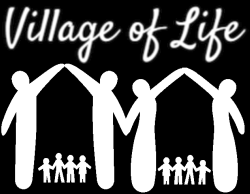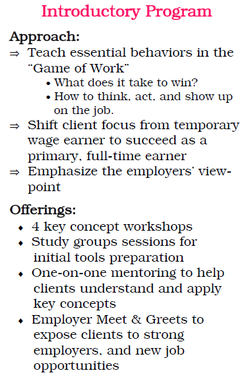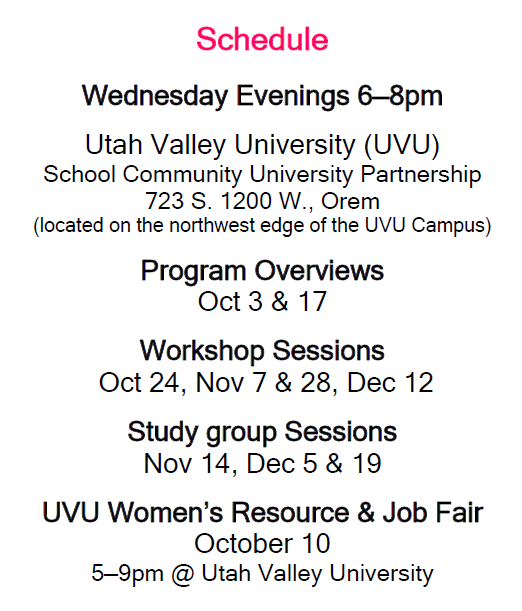MONEY MIC: WHY I MOVED BACK IN WITH MY PARENTS by LearnVest
According to a nationwide survey conducted by LearnVest and Chase Card Services, a division of JPMC, fully 40% of LearnVest readers have lived with their parents after age 21 and 7% of LearnVest readers live with their parents right now. So today, one 20-something shares her story of why she chose to move back home–and how she managed to move back out.
Living at home after graduation was a reality I refused to accept.
2009 was a dismal year to graduate: the toughest job market in decades, with more than two million college grads unemployed and 80% of young adults living at home. Still, I refused to believe that I could be one of them.
Up until that point, my life had followed a certain formula for success: Do your homework and study, and you’ll get into AP classes. Check. Play varsity sports and ace the SAT, and you’ll get into a good college. Check. Work hard and graduate with honors, and you’ll get a good job. Fail.
I graduated from Washington and Lee University that June with $14,000 in student loans and zero job prospects in my chosen field: journalism. I accepted my diploma, packed up my parents’ car, and went right on back to my childhood home.
Not in the Plan
Growing up in suburban New Jersey in the shadow of the Big Apple, New York City always seemed intimidating. Then the summer before graduation, I won a scholarship to live there while interning at a national magazine. Immediately, I fell in love—with both city life and the magazine industry.
After the internship, I sold my car, convinced that I would live in the land of subways after graduation (and relishing in the extra money my lack of insurance payments offered me). Then the economy took a turn for the worse. The tentative job offer from my internship vanished as the magazine instead made cuts.
I doggedly refused to accept living with my parents as permanent. I got a job at a local day care to earn money and stay busy before I surely would land my dream job and move to the city. Slowly, though, reality started to creep
in.
Two weeks turned into two months. My naïve optimism waned. There I was, sleeping in my old twin bed in the shadow of the city where I wanted to live, making minimum wage and hitching rides around my hometown from my mom. I blinked hard and realized: I had hit rock bottom.
No Coddling From the ‘Rents
My parents were kind enough to not charge me rent while I was under their roof, mostly because I think they too saw my time home as temporary. Plus after I had just spent four years of college living seven hours away, they were honestly happy to have me home. But the truth was they had become empty nesters, and my coming home was effectively crashing their nest. As hard as moving back was for me, it was just as hard for them. While I had to adjust to being treated like a teenager again, they had to adjust to having an adult in the house.
Living with them after college, I had the bad parts of being a kid again (curfew and chores) but not the good (when I came home from work, dinner was conspicuously missing from the kitchen table). With my dad away during the week for work and my older sister living on her own, my mom had no reason to make family meals anymore. The first time I asked what was for supper, she raised her eyebrows and laughed, “I don’t know, dear. What are you making for yourself?”
My parents have always tried to teach me the value of a hard-earned dollar. They paid what they could of my expensive tuition and expected me to fund the rest. I worked after-school and summer jobs from age 14 to college and put $10,000 toward tuition by the end of my freshman year.
Sure, I would have loved to move to New York right out of college. Believe me, it’s no fun to share a shower schedule with your mother. But I felt like I had no choice: I simply couldn’t afford to pay rent until I had a steady paycheck to sign over to a landlord.
How This Affected Me
Living at home did a number on my confidence.
Facebook and I had a falling out because pictures of apartments and friends’ happy hours made me resentful—especially of those fortunate few whose post-graduate educations and rent payments were like an all-expenses paid vacation courtesy of mom and dad. (Something that is apparently all too common.) My parents wanted to help me get on my own two feet, but they weren’t about to go broke doing it for me.
So I avoided gatherings where the inevitable “What are you doing?” question might be asked. College reunions? No, thank you. It was embarrassing enough to run into my ex-boyfriend’s parents in the supermarket and explain my “situation.” In my mind, it was less humiliating to job search in private than to admit my failure in front of others. Looking back, I shouldn’t have shied away from networking—plenty of 20-somethings were in the same boat as me. But I was fixated only on what I didn’t have.
Hello, Reality
After three months at home, my obstinate fixation on a dream job in the dream city started to subside. I was job searching daily and going on interviews, but to no avail. So while still living at home, I took a minimum-wage internship at a regional magazine. My commute and my $8-an-hour salary were next to nothing, so I figured I’d stay put until something better came along.
Eight months in, I was promoted to a salaried position. The job wasn’t glamorous, but as part of a small staff, I learned quicker and wore more hats than I might have elsewhere.
Meanwhile, I continued to work as a glorified babysitter at the day care a few nights a week at $8 an hour to supplement my income. Even with that, I was making under $28,000. I had no magic number in mind that I’d need before I moved out of my parents’ house, but I felt the freedom of living on my own was out of reach.
Having $14,000 in student loans felt so crushing that it was a relief not to worry about rent or groceries. I consolidated my four loans into two monthly payments totaling around $200 a month, and gradually increased the payments as my savings account swelled. Since my main expenses at home were gas and social activities (hardly expensive in suburban Jersey, where a night out meant $1 PBRs at a local dive bar), I eventually managed to save close to $10,000.
Then, as I approached my two-year anniversary of living with my parents, a friend transferred to New York for work and asked to be roommates. My biggest fear was moving out prematurely and having to return home with my tail between my legs. Even though I had saved up a chunk of change from my time at home, I wanted to keep it safe to help pay off my student loans instead of living off of it. But it felt like an opportunity was finally being handed to me. I couldn’t pass it up.
Slummin’ It
My first apartment was a dump located just across the river from New York, where the rent is cheaper. Our bathroom could only fit one person at a time, and my bedroom, the smallest of the three, was just big enough to house a desk, a small dresser and my very first queen-sized bed. When it rained, the skylight in the hallway leading to our unit became a waterfall, and in the fall, a family of mice decided to move in.
But every teeny, tiny square inch of it was finally mine.
At $875 a month, my rent was comparatively cheap. Still, it was a whopping 53% of my monthly take-home (and LearnVest recommends you only spend 50% of your income on all essentials, including rent, groceries, utilities and transportation). I should have budgeted before jumping in, but in my excitement, that fell to the bottom of my to-do list. Somewhere between outfitting the apartment, celebrating with friends over drinks and trying restaurants down the street, I emptied the $2,000 in my checking account within my first month living on my own.
So I modified my spending. On Tuesdays when the office went out for lunch, I brown-bagged it at my desk. I kept the walls in my room bare for six months, rather than filling them with newly-purchased art. And I stopped buying
clothing—even a $15 Forever 21 dress adds up when it becomes a regular cost. I also started to track every penny I spent to see where it was going—a habit I still have today (LearnVest has a free tool that can do it for you, too). Those first few months were hard, but I relished the independence of doing it on my own.
Turns out that putting myself into an uncomfortable financial situation was just the push I needed. By the fall, I landed a new job, finally in the city at a national magazine with clout. I saw it as a compromise: The title was slightly lower, but the $10,000 salary increase helped ease my financial woes. I felt like I could breathe easy again. A few months later, I gave myself the best Christmas present ever: I paid off the remainder of my student loans.
What I Learned
E.M. Forster said, “We must be willing to let go of the life we have planned, so as to have the life that is waiting for us.” I’ve tried to adopt that as my mantra, even when it seems impossible to let go of my expectations.
Responsible financial decisions, like shacking up in your high school bedroom to save money, or taking an underpaying job that will eventually enhance your career, are not always easy.
Going home after graduation is not something that I am necessarily proud of, even in hindsight. On my lowest days, I wonder what opportunities I missed in both my personal life and my career by living with my parents. Yet I also know that I gained a lot, financially and emotionally, from my time at home.
I developed a real, adult relationship with my parents. They’re no longer just Mom and Dad (or worse, a bank account). They’re friends. I started dating someone who also lived at home, whom I would not have met if I had moved straight to New York. I saved up enough money to pay off my loans and build my own emergency fund. (Here’s more on emergency funds.)
Even now, I still worry about my finances, my career, my living situation. I don’t think I would be a normal 20-something year old if I didn’t. Living at home was not the path I thought I would take, but looking back, I wouldn’t trade it for a crappy apartment of my own, two years earlier.






 RSS Feed
RSS Feed
